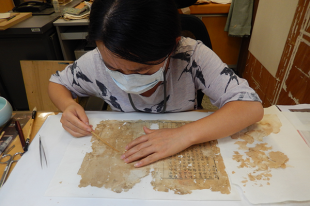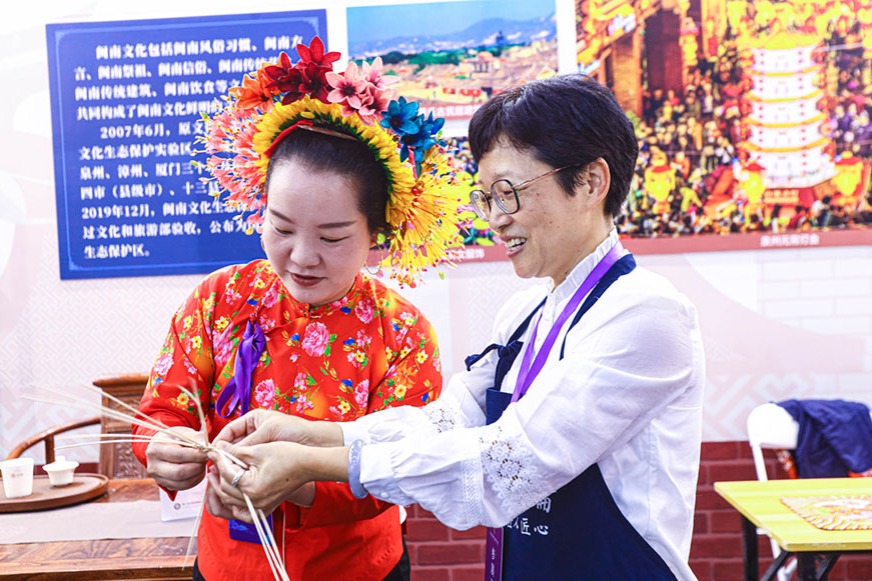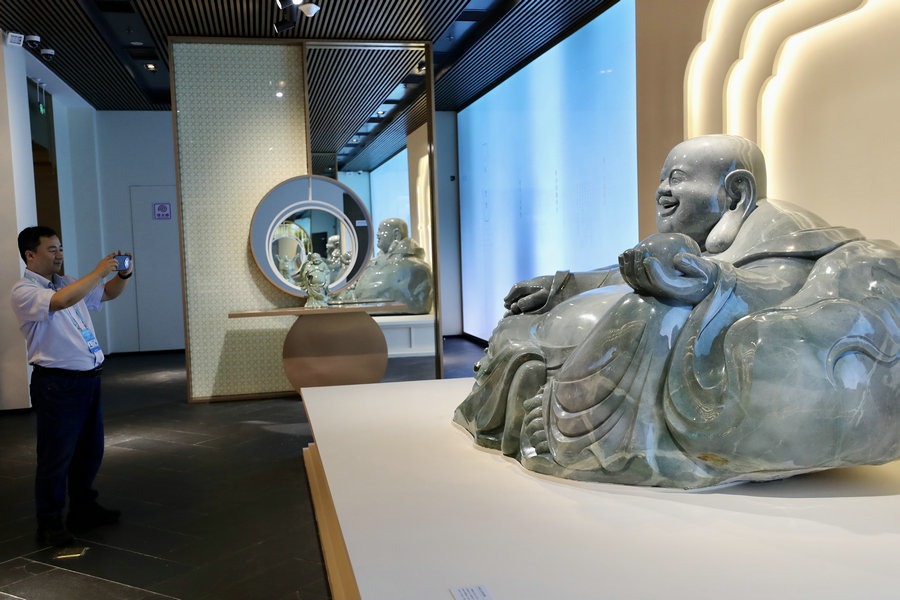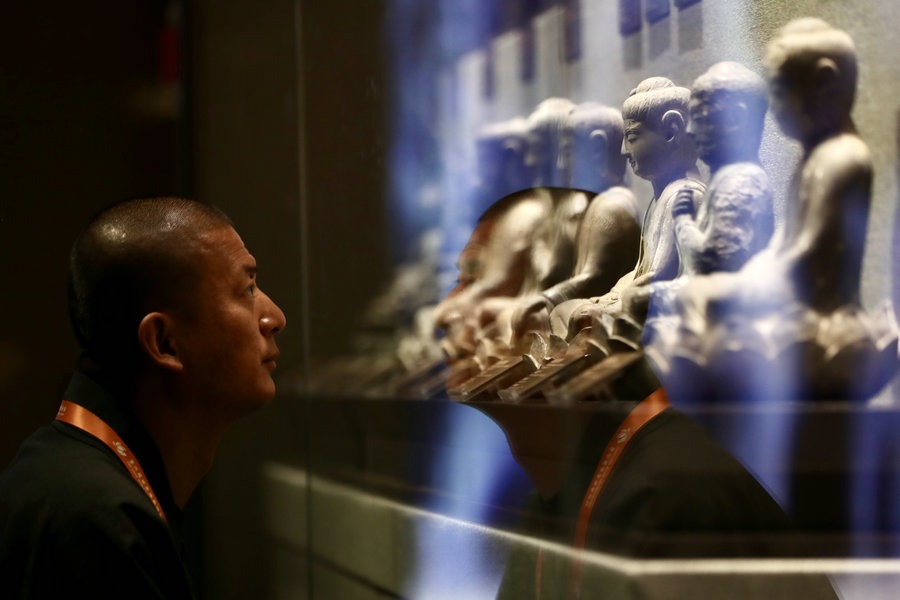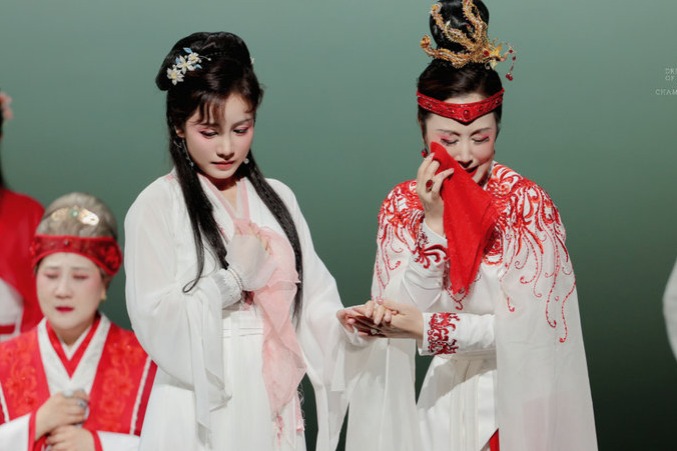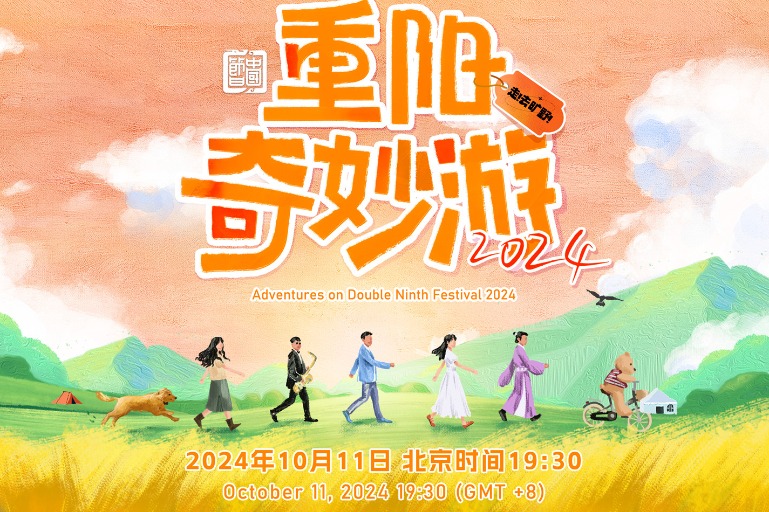Paging the book doctors

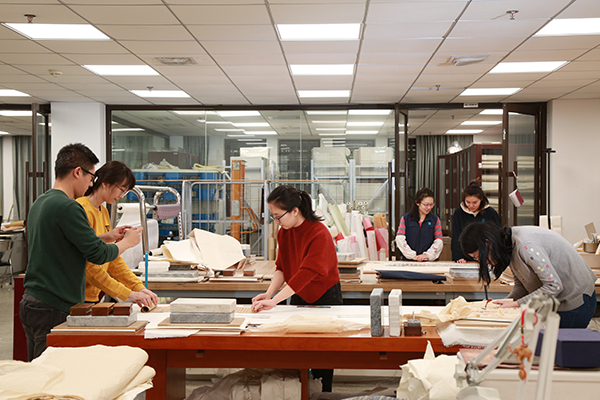
In the last decade, great strides have been made by the nation's top institutions to ensure that China's ancient texts are preserved for generations to come, Wang Kaihao reports.
For Tian Tingting, aged books sometimes resemble stale puff pastry. Often suffering from water damage, or having been snacked on by bookworms, the centuries-old pages are crispy and rotten, and in many cases, stuck together.
"They are too fragile," Tian says. "You can't be too careful when separating them."
She is a book restorer at the National Library of China, the world's biggest repository of ancient Chinese books. More than 2.7 million such books-defined as those published before the fall of monarchy in China in 1911-are now housed at the library.
Sometimes, the restorers behave more like chefs. For example, an old but efficient way to separate the pages is to steam them in a pot for six minutes, no longer and no less. Then a small bamboo stick and patience will help to split them apart.
Steaming can also help Tian carry out other restoration procedures. Once new paper is used to replace the rotten part of an ancient book, that same "cooking" method can greatly accelerate the aging process, giving the repair the patina of an aged appearance.
Nevertheless, in the restoration of ancient Chinese books, the basic principle is to maintain the original appearance of the book as much as possible with the minimum necessary intervention.
"So, in most cases, a page is merely partially fixed," Tian says. "Only when a page is severely damaged, we'll consider remounting the whole piece of paper for consolidation."
On April 16, Tian enjoyed a career highlight when her restoration of a copy of Tangwencui-"a collection of fine Tang Dynasty (618-907) prose"-from the 1520s won her the first prize in the national competition of ancient book restoration, which was awarded in her home library.
Launched by the National Center for Preservation and Conservation of Ancient Books, it is the first such national competition since the founding of New China in 1949.
"The written classics have borne our civilization for thousands of years and have been passed down for generations," Rao Quan, director of National Library of China, said at the award ceremony. "But they have always faced danger, ranging from war to worm. The restorers, therefore, play a vital role in the conservation of the books and prolonging the linage of Chinese literature."


